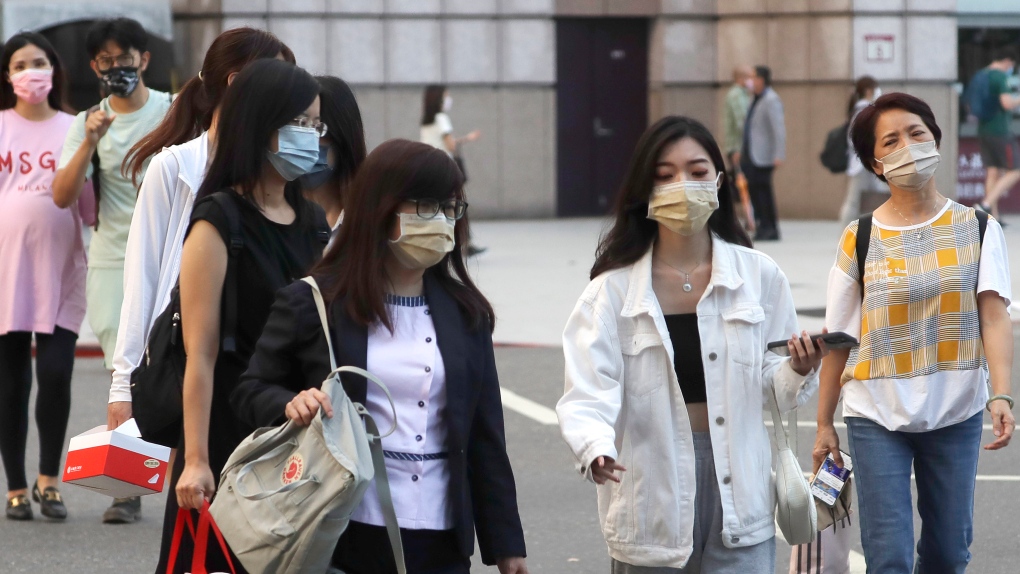TAIPEI, Taiwan -
Taiwan on Thursday said it will end mandatory COVID-19 quarantines for people arriving from overseas beginning Oct. 13.
The Central Epidemic Command Center announced that the previous weeklong requirement will be replaced with a seven-day self-monitoring period.
A rapid antigen test will still be required upon arrival, but those showing no symptoms will be allowed to take public transportation.
Deputy Minister of Health and Welfare Victor Wang said the current limit of 150,000 visitors allowed to enter Taiwan weekly will also be gradually relaxed.
Taiwan has been one of the few places in the world that has held on to a quarantine for all arrivals throughout the course of the pandemic.
In recent months, it has relaxed its measures and currently requires travellers to isolate in a hotel for three days, followed by four days at a private residence.
Wang said epidemic prevention regulations will continue to be loosened and that Taiwan would learn to live with the virus through constant self-regulation. That stands in strong contrast with mainland China's hard-line "zero-COVID" policy that has put millions of people under lockdown, upending daily life and the national economy.








































